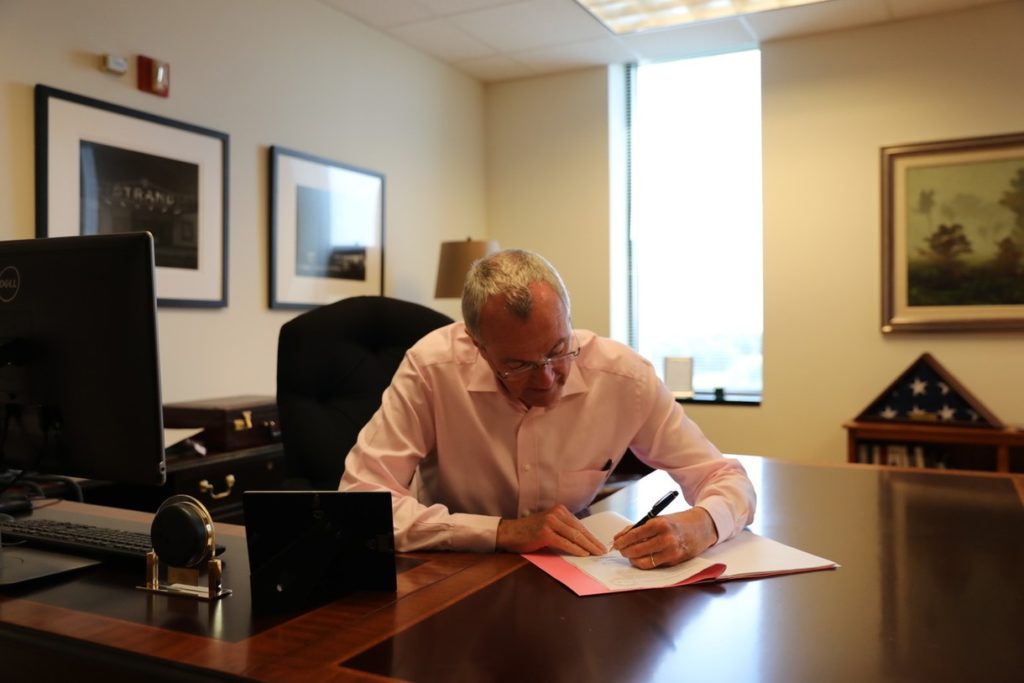Governor Murphy Vetoes Bag Fee Bill

Governor Murphy Vetoes Bag Fee Bill
New Jersey Governor Phil Murphy vetoed a bill (A.3267/S.2600) today that would have imposed a 5-cent fee on single-use carryout bags. Retailers would have retained $0.01 and $0.04 would have been directed to the State Department of the Treasury to be deposited into the “Healthy Schools and Community Lead Abatement Fund” for lead plumbing removal.
“We are disappointed by the Governor’s failure to issue strengthening amendments for what could have been the first step in the right direction to curb bag use statewide. With reasonable fixes, the bill would have prevented plastic waste from entering our environment and harming wildlife,” said Kelly Mooij, Vice President of Government Relations, NJ Audubon.
"Governor Murphy had the chance to reduce New Jersey's plastic pollution by closing loopholes and allowing the legislature to pass a stronger bill. Without any kind of law to reduce single-use bags, our state will continue to be overrun by dangerous pollution that threatens the health of New Jersey families and businesses. We look forward to working with the Legislature to combat this problem and make New Jersey an environmental leader once again," said Ed Potosnak, Executive Director of New Jersey League of Conservation Voters.
"Governor Murphy vetoed an industry backed bill that sought to reduce plastic bag pollution through weak action. This bill could have been fixed with amendments that would have made it mirror the successful plastic bag bills in Maryland, Illinois, and California. The Association of NJ Environmental Commissions urges Governor Murphy and the NJ Legislature to work together to adopt a strong plastic bag bill,” said Jennifer M. Coffey, Association of New Jersey Environmental Commission (ANJEC) Executive Director.
NJ Audubon, ANJEC, and NJ League of Conservation Voters provided recommendations to the Governor’s office to significantly strengthen and further the bill’s effectiveness. Recommendations included increasing the fee, removing a bag thickness loophole, expanding applicable stores, removing preemption language, which would prevent municipalities from passing stronger bag laws, and allocating a portion of the fee to litter abatement.
Studies show that fees are effective in changing behavior and reducing bag litter. Six months after Boulder, Colorado implemented a 10-cent fee, bag use declined 68%. And, one year after Washington, D.C. implemented a 5-cent fee in 2010, bag use declined by 60%.
“While bag fees are effective, we encourage the Legislature to look ahead to a future of zero plastic bags entering our waste stream and environment.The gold standard of bag policy is a ban/fee hybrid in which plastic bags are banned and a fee is imposed on all other bags. A fee component is necessary to address all bags and to avoid legal claims related to straight bag bans with no minimum charge for other bags,” said Mooij.
“In a state that uses 4.4 billion plastic bags annually, there is no time to waste. NJ Audubon encourages municipalities to adopt their own bag bans, joining Jersey City, Hoboken, Belmar, and many others. We recommend that the Legislature considers a statewide plastic bag ban and a fee on all other bags. We will continue our work to further waste reduction policy to protect public health, wildlife, and our environment,” said Mooij.
“New Jersey needs to do its part to stop birds, fish, turtles, and whales from dying due to our plastic garbage. A strong law will also keep our sewer infrastructure from getting clogged with plastic bags, backing up the system, and making flooding worse for homes and businesses when it rains,” said Coffey.
Plastic pollution threatens more than 600 species, by means of ingestion and entanglement, according to the U.S. Environmental Protection Agency. Sea turtles and seabird species such as ospreys and cormorants are particularly vulnerable to the effects of entanglement and ingesting plastic particles, and cumulative impacts can lead to intestinal blockage and reproductive failure. Plastic also acts as a sponge for contaminants present in our waterways, adsorbing PCBs, DDT, oil, and pesticides. Thus, wildlife ingesting plastic are also ingesting these contaminants that bioaccumulate in our ecosystems and move them up the food chain.





